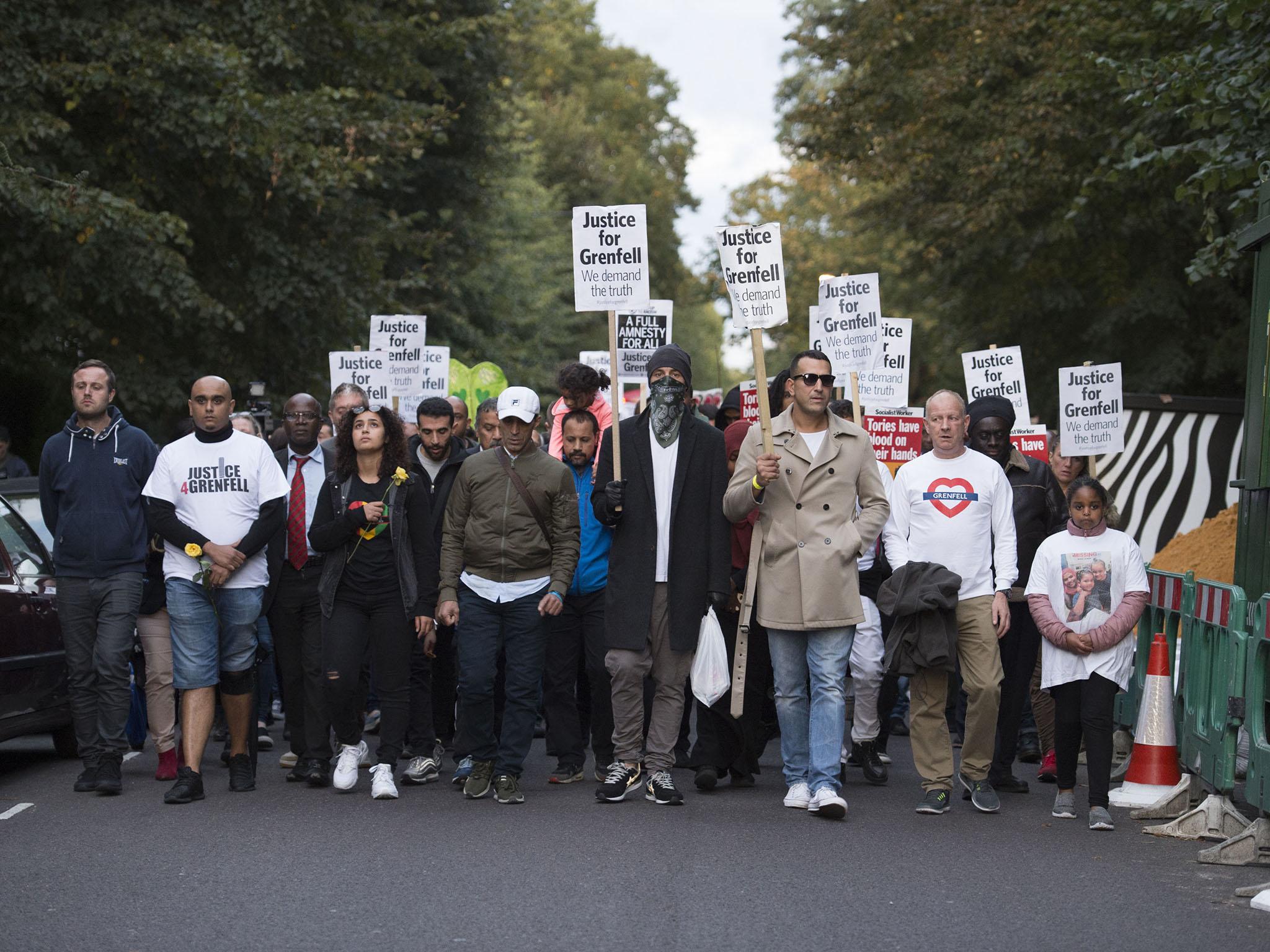Despite grand promises to our community, not enough was done after Grenfell. We can only hope that this inquiry is different
The questions do not stop on the night of the fire. Even after negligence led to the worst civil disaster modern London has seen, those of us whose lives had been destroyed were left in limbo and confusion

Your support helps us to tell the story
This election is still a dead heat, according to most polls. In a fight with such wafer-thin margins, we need reporters on the ground talking to the people Trump and Harris are courting. Your support allows us to keep sending journalists to the story.
The Independent is trusted by 27 million Americans from across the entire political spectrum every month. Unlike many other quality news outlets, we choose not to lock you out of our reporting and analysis with paywalls. But quality journalism must still be paid for.
Help us keep bring these critical stories to light. Your support makes all the difference.
Three months on from the horrors of the Grenfell Tower fire, our community is hoping that we have reached the first step on the long road to justice.
In June, the Prime Minister promised that "no stone would be left unturned" in exposing the whole truth of what happened that night. With terms of reference that remain too narrow, and with significant gaps between the remits of the inquiry and criminal investigation, those may remain just words.
Yet within the scope of the inquiry there are critical questions to be answered about why so many warnings were missed, why residents were ignored and why human life played second fiddle to cost-cutting.
Two days ago Fire Commissioner Dany Cotton argued that sprinkler systems in tower blocks like Grenfell should now be a basic standard. But this is not a new idea. It was raised years ago and opposed by the then Planning Minister on the grounds that enforcing such a safety regulation would scare away property developers.
We now know from leaked emails that the cost-cutting exercise which led to less fire resistant plastic cladding blocks being stuck to the tower was prepared at short notice to meet a morning deadline. At that time every concern that was raised, from the placement of boilers to power surges to poor maintenance, fell on tone deaf ears.
These are just small examples of the carelessness and neglect doled out to people living in social housing, even in London's richest borough.
The inquiry is tasked with finding the immediate causes of the fire, the factors that allowed it to be spread so devastatingly, and the sufficiency of building regulations.
We know already that both local and central government failed horribly. The reasons for this should be exposed in forensic detail. Which regulations were scrapped and which ones simply weren't enforced? Did the £200m in fire cuts previously recommended by the official who now advises government on post-Grenfell fire safety play a role? Why were local people ridden roughshod over at every turn, and on whose authority?
The questions do not stop on the night of the fire. Even after negligence led to the worst civil disaster modern London has seen, those of us whose lives had been destroyed were left in limbo and confusion, often unable to access the most basic support.
In the days and weeks following the fire survivors and locals wandered from place to place, unable to access emergency help, unable to access mental health services and with confused and conflicting information about how they would be rehoused. Rent payments were still being taken from people in evacuated blocks until residents drew public attention to the problem.
Yesterday people walked to the inquiry from the hotels in which they are still living, unable to begin the slow process of rebuilding. Despite grand words, we know of only two families who have been permanently rehoused.
It has fallen to suffering people in the local community, and their supporters, to come together and organise huge sections of the relief effort. But it should not only be during that time of chaos and tragedy that the community is permitted to have a say in our living conditions and wellbeing. If one thread runs through the story of the fire – before, during, and after – it is a failure of those in power to listen, engage and respond to the needs of working class people in North Kensington and beyond.
That failure now has to be rectified. Our confidence in the powers that be is low after all that has happened, but we continue to hope that Sir Moore-Bick's inquiry listens, responds and asks the right questions; not just for restitution for the survivors and our grieving community but to ensure that such appalling, fatal neglect is never allowed to happen again. We will keep up the pressure for justice – because only once a genuine turning point is achieved can those who perished in Grenfell Tower be laid to rest.
Join our commenting forum
Join thought-provoking conversations, follow other Independent readers and see their replies
Comments